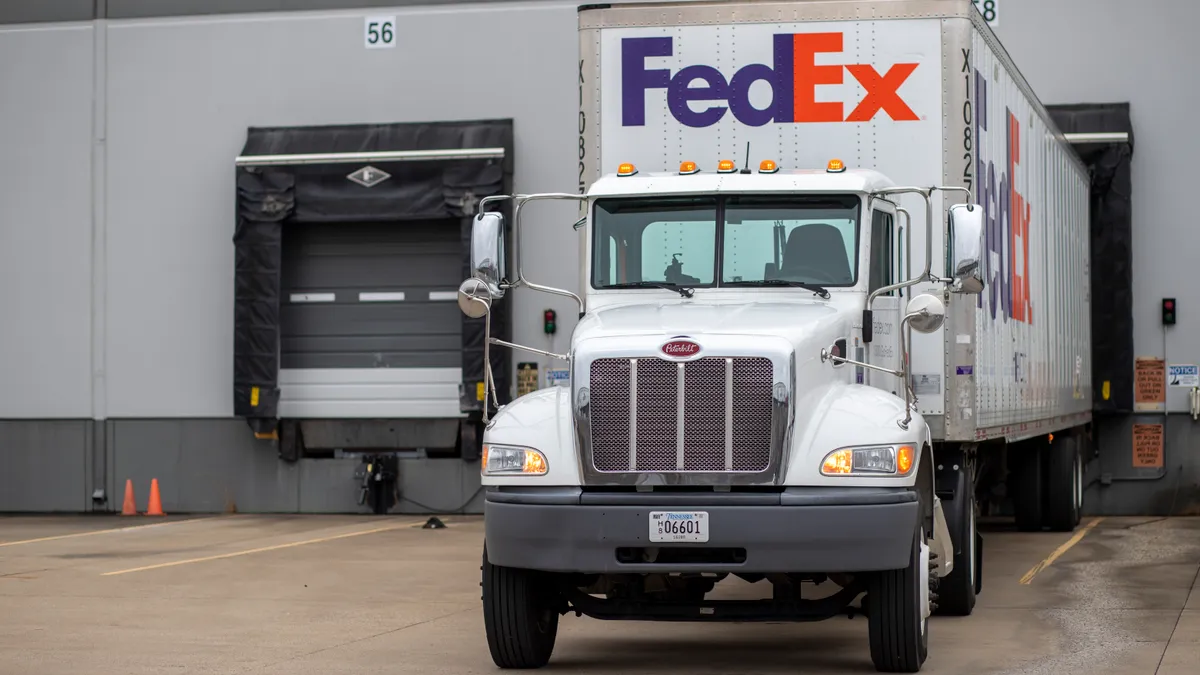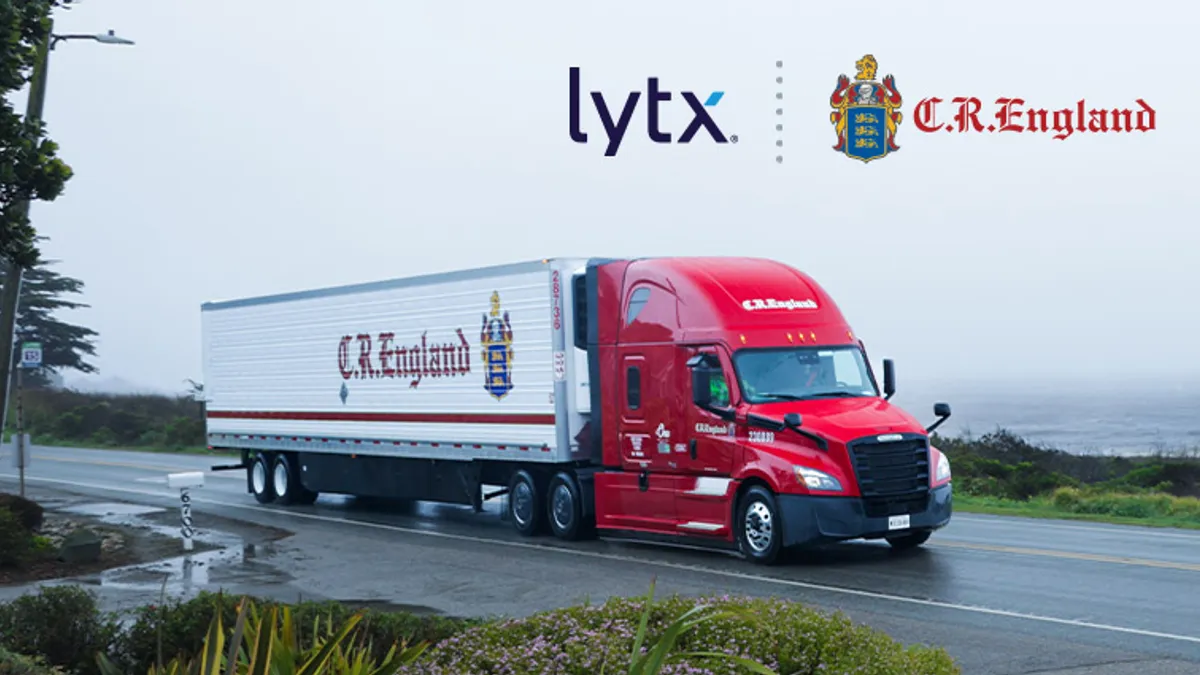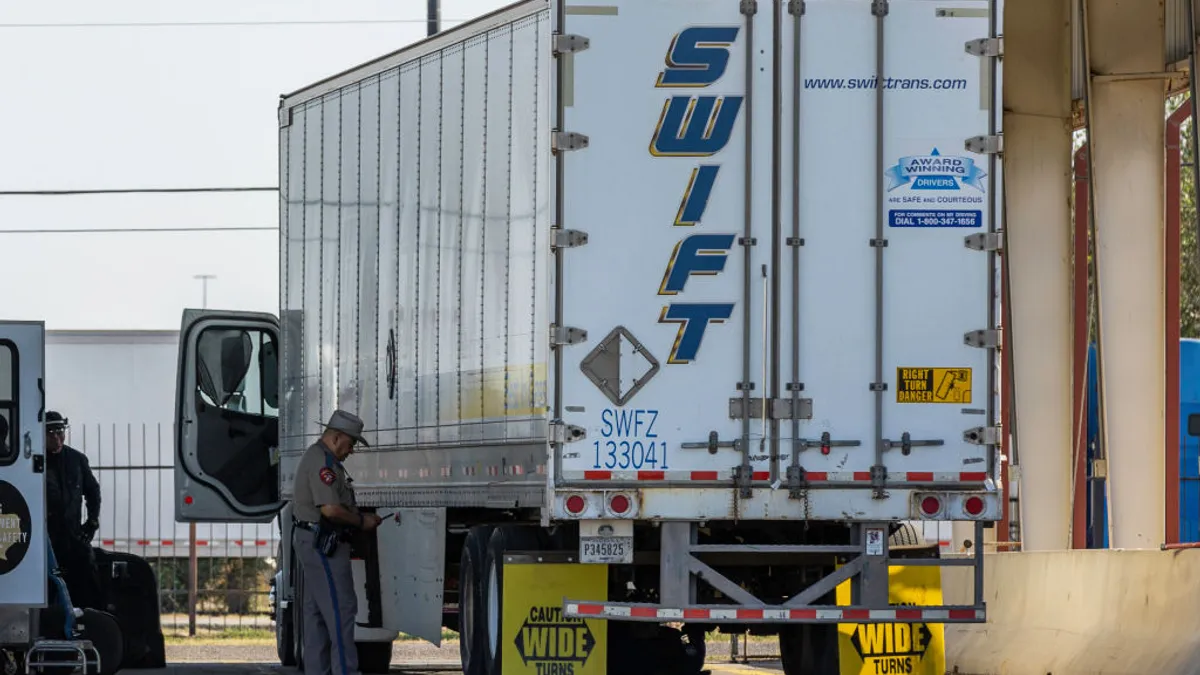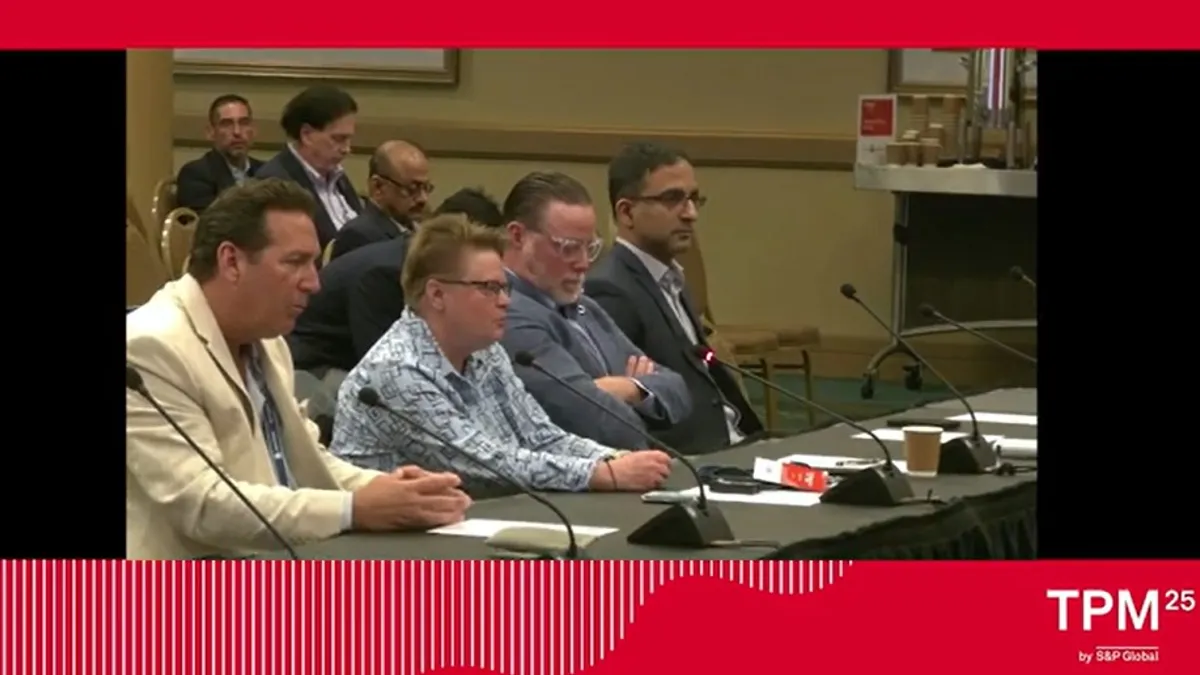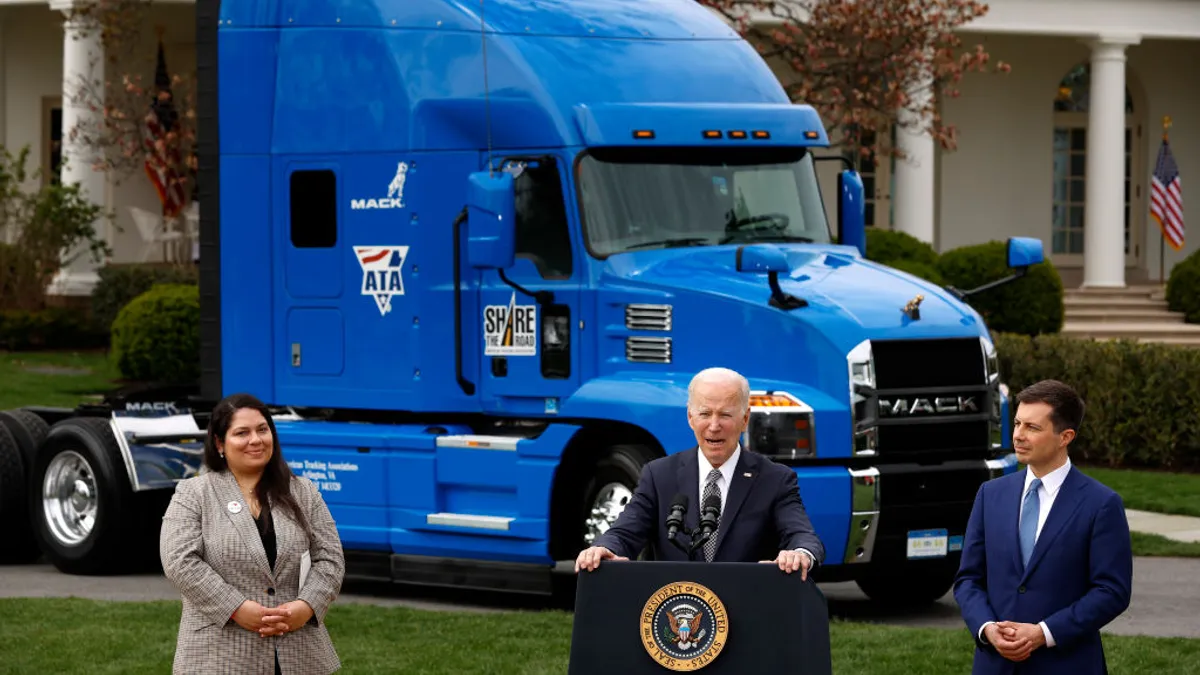After a stellar quarter at the end of 2021, it could be hard to believe, for some, that USA Truck came out of a decade of losses and crippling turnover about five years ago.
Not so for the employees of USA Truck itself. The company frankly acknowledges what occurred from 2007 to 2016, a period of time CEO James Reed called a "lost decade" during an investor call in 2019. While other fleets were coming out of the Great Recession of 2007-2009, the tailspin was, in many ways, just starting for USA Truck.
During that decade, the company struggled through what Reed said in 2018 were "multiple leadership teams, multiple business cycles and strategies, and never-ending changes in direction."
Those problems included seesawing revenue, declining morale and huge driver turnover. The problems grew, causing a cycle of driver turnover.
USA Truck's losses pile up from 2009-2013
At first, the problem seemed attributable to arguably the deepest recession since World War II. By 2009, at the nation's economic nadir, USA Truck was in trouble, with revenue dropping to $331.5 million, and losses of $7 million.
The losses continued in the years after. USA Truck found no quick consistent rebound. By 2016, the company was in a decade-long rut.
Finding fixes for drivers
Drivers took note of the steady stream of bad news, troubled segments and inconsistent management. They were voting with their feet.
Driver turnover peaked at 140% in 2016, according to Tim Guin, executive vice president and chief commercial officer of USA Truck. That's 1.5 times the normal TL turnover rate of 90%, according to the American Trucking Associations.
Reed and his team knew action was needed. Guin said USA Truck went to work in 2017 creating an environment in which people wanted to work and stay. Of course, any TL carrier will try to bring down turnover, which is the bane of the industry as a whole, especially the TL sector.
"It's not easy to do," said Guin. "It takes a long time. It's about building trust."
USA Truck added two reforms, both related to technology, to gain that trust back, Guin said.
For one, the company added "USAT Connect" to its cabs. The operating system uses a Samsung tablet that combines telematics with company services, equipment location, trailer location, weather programs, training and feedback systems. USA Truck credits the communications system with more efficient load scheduling, and that means drivers get more home time.
"It's not easy to do. It takes a long time. It's about building trust."

Tim Guin
Executive VIce Presdient and Chief Commercial Officer for USA Truck
USAT Connect allows apps to be added. And the system allows training via video, so drivers don't have to come in to offices.
But it's the load scheduling that one USA Truck official believes is helping retention. The scheduling allows drivers to work in their own time frame, allowing them to start and stop their trips when they want.
"They can plan their days and weeks," said Blair Ewell, senior vice president of TL operations.
Ewell said drivers have goals of revenue and miles to meet, but within those goals, USAT Connect helps drivers with flexible hours to achieve them. In an industry rife with waiting times, construction zones, traffic jams and more, it is important to let drivers tap out for rest when they need to, he said.
"If they are tired, they're tired," said Ewell.
The result of improved scheduling and communication through USAT Connect has been much better retention, said Ewell.
"I have been in the TL industry for 37 years," said Ewell. "I am enjoying the lowest driver turnover rates of my career."
The other reform was to take driver feedback through that system, and do something about it. USA Truck has partnered with WorkHound to gather the feedback.
Initially, the company was concerned that they were unleashing a fire hose of negativity upon management employees from drivers, said Nick Wakefield during an October 2020 online forum with WorkHound. At that time, he was vice president of human resources, driver recruiting and retention. (Wakefield is no longer with the company.)
"It's now a monthly thing we are doing across departments," said Wakefield. "It's changing the game."
USA Truck used the feedback to spot problems drivers and office employees identified. One thing employees wanted was the operating system that planned freight to be fixed. Guin said it was upgraded after years of no changes.
Drivers also wanted upgraded technology and new equipment. And they wanted better treatment.
Guin said that led to USA Truck to "change the culture." Driver turnover is now below 80% and dropping, he said.
And to help with recruitment, USA Truck has even taken to the airwaves, and YouTube, with a country music song aimed at driver appreciation. The song was titled "Pocketful of Quarters," by the Joe Stamm Band.
Guin said the song was a big hit for the company. Such media strategies are the way Reed does business, Guin said, noting he loves to tell the story of USA Truck on its YouTube channel.
A culture warrior
USA Truck's business has started to rebound — with stronger financials and lower turnover — and analysts say it's thanks in large part to the man at the top.
"Under James, they've gained a better focus," said Jason Seidl, Cowen managing director covering airfreight and surface transportation. "The management team has had ... focus. He's done well."
Before USA Truck released its financials on Feb. 3, Seidl predicted Q4 would be another strong quarter for USA Truck profit. He was right.
Net income in Q4 2021 doubled compared to the same period in 2020, reaching $12.2 million. Q4's operating revenue jumped more than 26% over the previous year, to $200.9 million.
"The company transformation that we have discussed over the last several years has yielded our sixth-straight quarter of record adjusted earnings per share," Reed said in a news release. "The fourth quarter and full year 2021 represent our highest total revenue and adjusted earnings per share in the company's history."
Seidl said the market environment has also helped, though its not enough to save floundering fleets alone.
"It helps that this management team has some wind behind them," said Seidl. "They've taken advantage of a good marketplace."
That effort was not always reflected in the stock price, or at the right time. On Feb. 20, 2015, the stock hit $31.31, its all-time high. By May 19, 2017, its stock had dropped to $6.25. It rose to about $25 by early 2018, only to dive again to $3.35 on March 27, 2020.
On Feb. 11, its price had rebounded to reach $26.26 per share, at one point.
Seidl said a midcap company like USA Truck can often face greater scrutiny than a large-cap carrier. Investors tend to watch midcaps closely, and recall every problem. Seeing a fair share price for a midcap carrier that has fixed its problems may take longer.
Seidl said USA Truck made all the right moves to get past the lost decade. The company targeted sustainable and diverse clients, while trying to manage routes to get drivers home in a timely manner, Seidl said.
Seidl, a former driver himself and now one of three analysts who covers USA Truck and its stock, said the company has indeed done a better job of retaining drivers during the pandemic, one of the toughest environments in which to recruit and retain OTR drivers.
Learned to lose
Reed came with 20 years of experience in trucking, freight and finance. According to his corporate bio, Reed worked as CFO of Interstate Distributor Co., an asset-based trucking business, and also president of its subsidiary, Interstate Distributor Logistics. There, Reed was in charge of accounting, financial planning, IT, analysis and strategic planning process.
Reed said during one of his YouTube interviews in November that, when he arrived in late 2016, he noticed the company culture "had learned to lose," borrowing a phrase from a college football program that needed to be improved.
So, despite his finance experience, Reed didn't necessarily go at the company the way a number-cruncher would, focused on financials. Instead, he behaved more like a culture warrior, eager to build morale, manufacture consistency, and take care of clients and drivers.
"Working for the right people can mean everything."

Jason Seidl
Managing Director at Cowen
In the company's November video, Reed spoke of going to the Oregon coast with a friend for a week in 2020. All they did was talk about improving company culture. Upon returning, Reed had a meeting about changing behaviors to achieve goals. He came up with six agreed-upon statements to reach USA Truck's goals. One of them was, "See a problem; own a problem."
"Working for the right people can mean everything," said Seidl. "Ninety percent of your experience is who you work for ... They listened to the marketplace and they listened to their workforce."
Clarification: This story was updated to clarify that Nick Wakefield no longer works for USA Truck.






